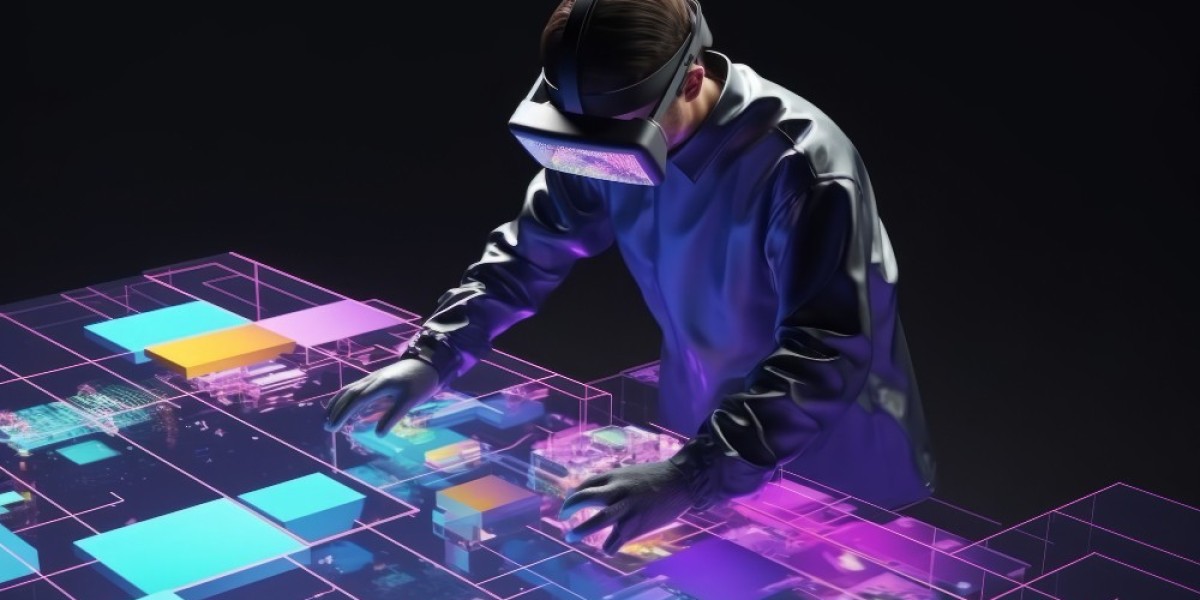Public blockchain has moved beyond crypto.
Today, it's shaping real use cases across industries. These blockchains are open, decentralized, and designed to bring transparency and automation into systems that were once slow and opaque. The changes are happening in logistics, identity, healthcare, education, energy, and more.
As the ecosystem grows, Blockchain Development Companies in India are actively building practical applications. A Blockchain Development Company that focuses on usability, speed, and compliance plays a vital role in this evolution.
Supply Chain and Logistics
Supply chains involve many steps.
From raw materials to final delivery, each stage has multiple participants. There's risk of fraud, delays, and poor visibility. Public blockchain makes the entire chain traceable.
Every step in the movement of goods can be recorded.
Each transaction becomes a block. This can include location updates, inspections, customs, and temperature logs. Anyone in the network can verify the history. If a shipment is delayed or tampered with, it’s easy to trace what went wrong.
Companies using blockchain in logistics can quickly verify the origin of a product.
This is important for sectors like food, medicine, or luxury goods. Blockchain Development Companies in India are developing systems that integrate with IoT sensors and GPS trackers. These tools send real-time updates to the blockchain.
A Blockchain Development Company also ensures that permissions, scalability, and data privacy are built into the application layer.
Digital Identity and Verification
Identity is the foundation of many services.
But in most countries, identity documents are fragmented. They are hard to verify, easy to fake, and often lost. Public blockchain enables secure and self-owned digital identities.
Each user can hold their identity data on a blockchain wallet.
This may include education credentials, age verification, residence, and health data. The user can share only the required data instead of full documents. This helps protect privacy.
Banks, governments, and universities can instantly verify the authenticity of the data.
No need for back-and-forth communication or scanning papers. Blockchain Development Companies in India are building digital ID platforms that work across institutions.
A Blockchain Development Company ensures the system is tamper-proof, user-friendly, and accessible even with limited connectivity.
Healthcare Data Management
Healthcare relies on accurate records.
But medical records are usually stored in different hospitals, labs, and clinics. They are not easily shared. This leads to errors and repeated tests. Public blockchain can create a secure health data ledger.
Patients can control their own data.
They decide who gets access. Doctors, specialists, or insurance companies can view the history only with permission. Blockchain ensures that records can’t be changed or erased.
It also helps in tracking the origin of drugs and devices.
Fake medicines are a big problem in many regions. Blockchain Development Companies in India are working on tools to validate the supply of medicine from factory to pharmacy.
A Blockchain Development Company also integrates with health tech systems to make onboarding seamless.
Education and Credentials Verification
Educational qualifications must be trusted.
But fake degrees and mismatched data are common. Public blockchain can store certificates in a tamper-proof format.
Universities can issue digital diplomas directly to a student’s wallet.
Employers can verify the certificate instantly on the blockchain. This reduces time spent on background checks. It also ensures that students who change jobs or countries don’t lose their credentials.
Blockchain Development Companies in India are building credential verification systems for schools, universities, and online learning platforms.
A Blockchain Development Company ensures that documents are encrypted, signed, and linked to the issuing authority without the need for third-party intermediaries.
Real Estate and Land Registries
Land transactions are often complex.
Ownership records can be missing, duplicated, or manipulated. This leads to legal disputes and fraud. Public blockchain allows governments to record land ownership and property transactions in a transparent and permanent way.
Each plot or property can have a digital token.
Ownership changes can be registered on the blockchain. This ensures that once a property is sold, the change is visible to all. It prevents double selling and illegal occupation.
Blockchain Development Companies in India are helping local bodies build digital land registries.
A Blockchain Development Company also creates user dashboards for citizens and legal authorities to access, verify, and manage land data.
Energy and Utility Systems
Energy grids are becoming decentralized.
People can generate their own power from solar panels or wind turbines. But selling excess energy back to the grid needs clear rules. Public blockchain supports peer-to-peer energy trading.
Households can log their energy production and consumption.
They can sell extra energy to neighbors. Smart contracts manage pricing and settlements. This removes the need for centralized billing and creates more efficient energy markets.
Blockchain Development Companies in India are testing blockchain energy models in smart cities and rural areas.
A Blockchain Development Company helps manage micro-transactions, compliance, and integration with smart meters.
Creative Content and Intellectual Property
Artists, writers, and developers struggle to protect their work.
Ideas get copied. Royalties are delayed. Platforms take a large share. Public blockchain offers a way to register content ownership and automate payments.
Every photo, article, video, or design can be tokenized.
When someone uses or shares it, smart contracts can automatically send payments. This supports fair distribution of income.
Blockchain Development Companies in India are creating platforms for copyright protection, NFT-based royalties, and decentralized content hosting.
A Blockchain Development Company ensures that licensing terms are built into the smart contracts and that ownership is easy to prove.
Charity and Non-Profit Funding
Donors want to know where their money goes.
But traditional charity systems are not transparent. Funds can be lost in the middle layers. Public blockchain lets people track how donations are used.
Each donation can be logged.
Smart contracts release money only when targets are met. Donors can see updates on project progress. NGOs can build more trust and avoid delays in fund disbursement.
Blockchain Development Companies in India are working with charities to design donor dashboards and reporting tools.
A Blockchain Development Company also handles compliance reporting and connects funding platforms to local banking systems.
Public Governance and Policy Implementation
Policy implementation is often hard to measure.
Funds are allocated, but the impact is not visible. Public blockchain creates a clear trail. From budget sanction to execution, every step is recorded.
Citizens can see how policies are delivered.
They can track public works, education grants, healthcare delivery, and infrastructure projects. This builds trust in the system.
Blockchain Development Companies in India are working with government agencies to digitize fund allocation, grievance redressal, and document verification.
A Blockchain Development Company focuses on building interfaces that work in regional languages and offline environments.
Voting and Participatory Platforms
Elections must be secure and fair.
But traditional systems involve delays, manual errors, and security risks. Public blockchain allows citizens to vote from anywhere, securely.
Each vote is encrypted and recorded.
The count is automatic. It cannot be changed later. Voter identities are verified without revealing private information. This makes the system auditable and tamper-proof.
Blockchain Development Companies in India are building test platforms for local governments and cooperatives.
A Blockchain Development Company ensures that mobile-first access, identity verification, and real-time audit logs are available.
Public Blockchain: A Shared Infrastructure
These use cases prove that public blockchain is not limited to cryptocurrency.
It has entered real industries. It is solving real problems. From reducing paperwork to improving speed and trust, public blockchain offers a neutral infrastructure for all players.
The open and distributed nature of public blockchain makes it ideal for industries where many parties must collaborate without trusting each other fully.
Blockchain Development Companies in India are enabling this shift.
They build the core protocols, smart contracts, user interfaces, and testing environments. A Blockchain Development Company ensures that each project aligns with legal, security, and user experience goals.
Conclusion
Public blockchain is transforming how industries operate.
It is turning complex processes into transparent workflows. It is reducing fraud, improving accountability, and cutting operational waste.
The change is not theoretical. It’s already happening in logistics, health, energy, education, governance, and finance.
The role of Blockchain Development Companies in India is central to this journey.
They take abstract ideas and turn them into usable platforms. A Blockchain Development Company builds bridges between public blockchain and the real-world challenges of modern industries.
As more businesses and governments adopt this technology, public blockchain will become a shared layer of truth.
And the industries it touches will never be the same again.







